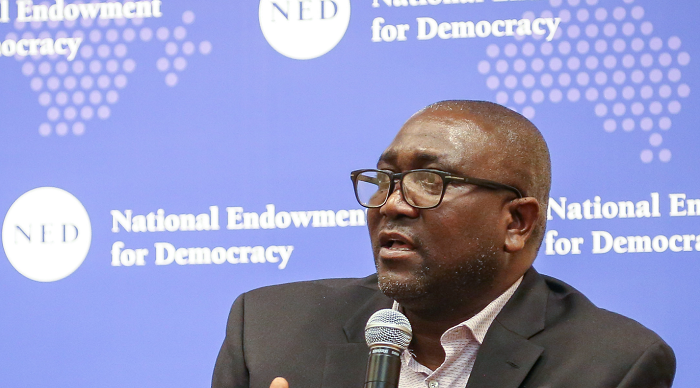ACCRA – Executive Secretary of the National Media Commission (NMC), George Sarpong, has said that the Supreme Court misunderstood the policy and technological orientation behind the Commission’s content regulation framework when it struck it down in 2016.
Addressing the Africa Media Bureau’s “Broadcasting at the Crossroads” forum in Accra on Friday, September 26, 2025, Mr. Sarpong said the Court’s ruling—which held that the NMC’s content regulatory instrument amounted to censorship—did not reflect the true philosophy behind the law.
“Significant numbers of the Courts have told us in private that they didn’t understand the policy orientation, they didn’t understand the technology,” he revealed.
He explained that the NMC’s framework was designed to complement existing technical rules under the Electronic Communications Act by providing behavioural oversight across broadcasting content. However, the Court’s decision left Ghana without a clear legal mechanism for content regulation, a vacuum he said has undermined effective governance of the sector.
Interestingly, Mr. Sarpong noted that just seven months after Ghana’s Supreme Court struck down the NMC’s framework, Germany passed a similar law widely known as the “Facebook Law.” This legislation became the basis for the European Union’s Digital Services Act, which is now a global benchmark for regulating digital platforms.
“In November 2016 our law was struck down. By June 2017 the Germans had already started talking to us about the philosophy of that law. Today, what Germany did has become the Digital Services Act for the entire EU. In the UK, they have passed a similar piece of legislation called the Online Safety Act,” he said.
Mr. Sarpong argued that Ghana was ahead of its time in developing content regulation for broadcasting but lost momentum due to the Court’s misreading.
“The philosophy that was rejected here has become the global standard,” he stressed, urging a national rethink on how to regulate media content in the digital age.
Source: citinewsroom.com




